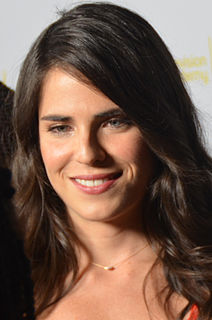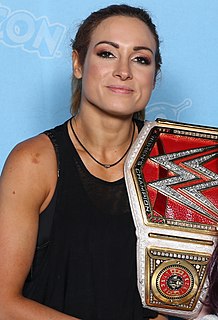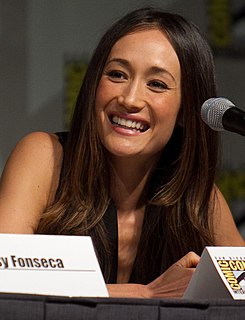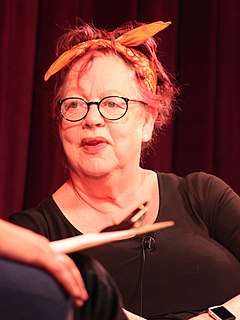A Quote by Karla Souza
I also have to be careful of what it says about women. I get a lot of scripts that only talk about women's appearances and what they look like. I think we're tired of having to meet this standard and not being asked what our talents or abilities are.
Related Quotes
On Girls I like being a mouthpiece for the issues I think young females face today. It’s always shocking when people question whether it’s a feminist show. How could a show about women exploring women not be? Feminism isn’t a dirty word. It’s not like we’re a deranged group who think women should take over the planet, raise our young on our own and eliminate men from the picture. Feminism is about women having all the rights that men have.
You're allowed to make things for women on television, and there's not like... you don't have to go through the humiliation of having made something directed at women. There it's just accepted, whereas if it's a feature, it's like 'So, talk to me about chick flicks.' It's like... I don't think you want to hear my opinion about this.
It turns out that a lot of women just have a problem with women in power. You know, this whole sisterhood, this whole let's go march for women's rights and, you know, just constantly talking about what women look like or what they wear, or making fun of their choices or presuming that they're not as powerful as the men around. This presumptive negativity about women in power I think is very unfortunate, because let's just try to access that and have a conversation about it, rather than a confrontation about it.
After leaving college, I was in a show called Sculpture by Women where I was asked to talk about my history of victimisation in art, and I genuinely didn't think I had been victimised. Although I obviously believe in a lot of the feminist aspirations, I was wary about being dragged down by the politics of it.
Now, I think a lot of people look around and feel that we're relatively equal with men. In fact, women are now the majority of college graduates, we have role models like Hillary Clinton to look up to - it seems like the world is completely open to us and we can accomplish anything. I think feminists are often disdained today because we're seen as complaining about a problem people think no longer exists. I also think young women shy away from calling themselves feminists because many haven't been educated about it or exposed to it. They don't know enough about it to identify with it.
I don't think you can be successful in television without appealing to women. I don't think it's possible. I think that men like women. It doesn't really matter what they do - they love anything. But women don't necessarily like every woman, so I think that's a challenge to get the female audience to not only relate to you but also like you.
I have observed that male writers tend to get asked what they think and women what they feel," she says. "In my experience, and that of a lot of other women writers, all of the questions coming at them from interviewers tend to be about how lucky they are to be where they are – about luck and identity and how the idea struck them. The interviews much more seldom engage with the woman as a serious thinker, a philosopher, as a person with preoccupations that are going to sustain them for their lifetime.
I know there are certain men that hate women or don't like women, and in order to make women feel small, they tend to isolate them when they bully them. And women are often humiliated by it and feel they can't do anything about it. So my advice to women would be: there's always support around for those sorts of things and if you feel you're isolated in any way, or being bullied, you must talk to someone about it.

































